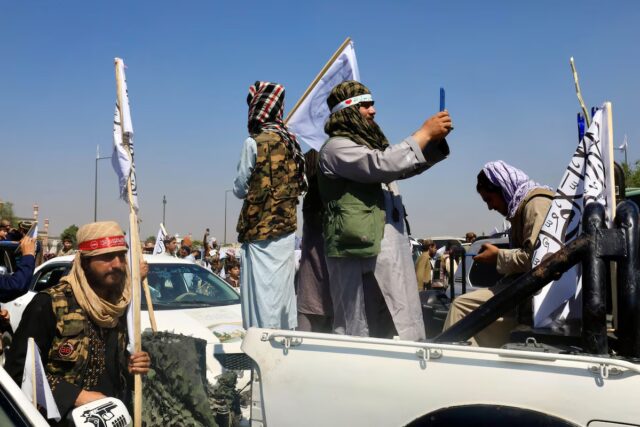A case of pot calling the kettle black? Pakistan’s ambassador to the UN, Asim Iftikhar Ahmad took aim at Taliban ruled Afghanistan during the General Assembly session and warned, “We must ensure that Afghanistan does not become a breeding ground for terrorists,” referring to the Tehreek–Taliban Pakistan (TTP) and other groups operating from within Afghanistan.
Pakistan’s angst clearly stems from the repeated attacks by the TTP on military and civilian targets in the country … but there are scores of terrorist and extremist organisations that operate freely in Pakistan. To name only a few, there’s the Lashkar-e-Taiba, Jaish-e-Mohammad and so on. Also recall that the late Al Qaeda leader Osama bin Laden lived in Pakistan for as long as nine years, shifting residence no less than six times.
The US has documented Pakistan’s role in backing the Afghan Taliban when its forces were deployed in the country defending elected Afghan government, whether that of President Hamid Karzai or Ashraf Ghani.
In Kabul, Taliban officials have denied the presence of any foreign terrorist groups on Afghan soil. However, the 36th UN Security Council Monitoring Committee report on ISIS states otherwise. The report considers the threat from ISIS, Al-Queda and other affiliated groups to be “diverse and dynamic.”
The report also identified new training sites which likely belong to both Al-Qaeda and TTP. Besides this, the Islamic State Khorasan province also remains active, and has been labelled as the “most serious” regional and international threat in South Asia. The main targets of this group are Shia communities, foreigners, and the Taliban itself, and they operate close to Pakistan’s borders. Reports say they have established suicide training courses for minors.
Not to forget, Al Qaeda leader Ayman Zawahiri who succeeded bin Laden after he was killed in 2011. Zawahiri died in Kabul in a US drone strike in July 2022. Clearly, Al Qaeda has a base in Afghanistan, so does the Haqqani network which is blamed for the suicide attack on the Indian Embassy in Kabul in which 56 people including the defence attache were killed.
Although the Taliban leadership claim they are not interested in spreading their ideology through war or any other means, they may be playing a waiting game here. They need to politically stabilise and rebuild before seeking to spread the faith. The region needs to be ever watchful.
(This article was written by Tisya Sharma, she is an intern at StratNewsGlobal)





